
Steering Clear Of Alcohol Cuts Your Risk
Women who consume three alcoholic beverages a week have a 15 percent higher risk of getting breast cancer than those who do not drink at all. Those who drink more are at an even greater risk. Avoiding alcohol is a proactive step to prevent breast cancer that every single woman has access to. You may not get pregnant and breastfeed, but you can certainly stay away from alcohol. Why does it work? Most breast cancers are fueled by estrogen, and alcohol increases your levels of this female hormone. Alcohol could also damage the DNA in your breasts' cells in such a way that makes cancer more likely.
- Important notification about information and brand names used in this slideshow!
- Array
- Photo courtesy of Mr. T in DC by Flickr
- www.breastcancer.org/risk?gclid=CJa5tb_ig7cCFVMftAodBTAAPw
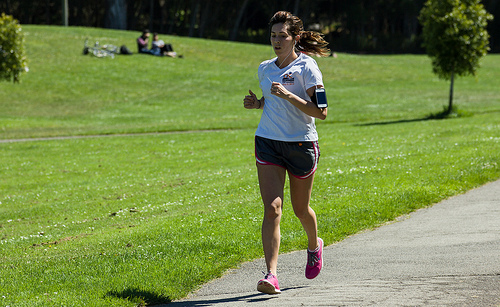
Use Exercise To Control Your Weight
Women who are overweight or obese have a higher risk of developing breast cancer, especially if they start putting on weight later in life after they enter the menopause. Exercising regularly will keep you looking good, and reduces your breast cancer risk at the same time. Make sure you engage in a variety of different exercise activities, including moderate and vigorous cardio workouts like walking, swimming and cycling and strength training. Many women find that they will need to work harder to achieve the same results once they enter the menopause, and they may have to adjust their diet as well.
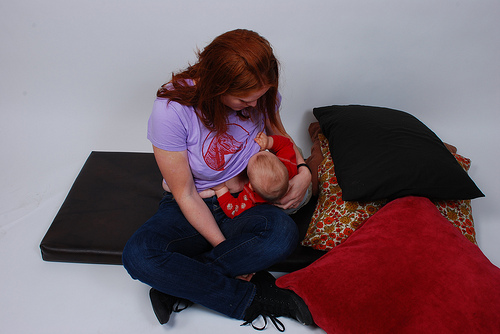
Breastfeeding Reduces Your Risk Of Breast Cancer
Breastfeeding is more than the healthiest mode of infant nutrition — nursing your baby also lowers your risk of developing breast cancer. The female hormone estrogen fuels 80 percent of breast cancers. Being pregnant and nursing your baby reduces the number of menstrual cycles you will experience during your lifetime, which in turn means you will be exposed to less estrogen. In addition, breastfeeding may change the cells in your breasts in a way that makes them more resistant to cancer. Breastfeeding for 18 months to two years will lower your breast cancer risk slightly, and you can reduce the risk further by breastfeeding for longer.
- Important notification about information and brand names used in this slideshow!
- Photo courtesy of Mothering Touch by Flickr : www.flickr.com/photos/motheringtouch/5204674735/
- www.mayoclinic.com/health/breast-cancer-prevention/WO00091
- http://breastcancer.about.com/od/riskfactorsindetail/a/breastfd_prevnt.htm
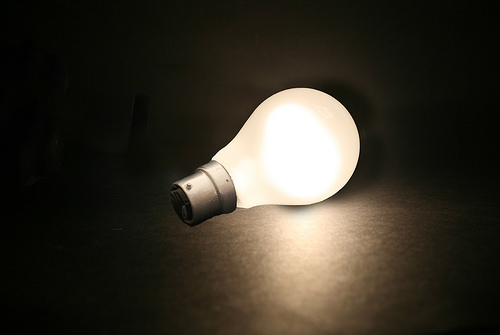
Stay Away From Electric Lights At Night
Research suggests that women who work night shifts have a higher risk of developing breast cancer. The same holds true for ladies who live in areas with high levels of all-night lighting. It is likely that melatonin, a hormone that helps regulate the sleep cycle, is the reason. Melatonin production is highest during the night, when it is dark. If you don't sleep at night, or are exposed to lights while you sleep, your melatonin levels are lower. What can you do? Stay away from electric light exposure at night, and don't work night shifts unless you absolutely can't avoid them.
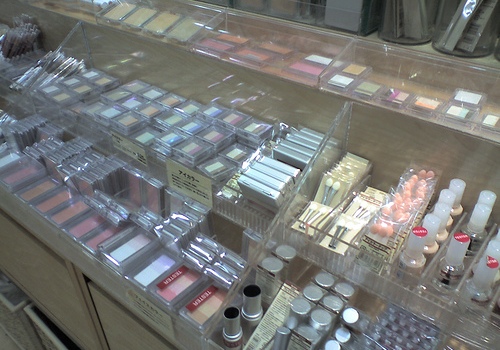
Avoid Using Too Many Cosmetics
Something as seemingly harmless as your makeup and personal care products may silently be increasing your risk of developing breast cancer. Did you know that your cosmetics may be full of dangerous ingredients? Two chemicals that are commonly found in cosmetics, parabens and phthalates, act as estrogen and hormone disruptors respectively. Both are known to increase your breast cancer risk. In order to reduce your exposure to these nasty chemicals, you can avoid using too many cosmetics or use the internet to find out which products are free from them. The Campaign For Safe Cosmetics is a good place to start.
- Important notification about information and brand names used in this slideshow!
- Photo courtesy of Akira Ohgaki by Flickr :http://www.flickr.com/photos/akiraohgaki/444886273/
- www.breastcancer.org/risk?gclid=CJa5tb_ig7cCFVMftAodBTAAPw
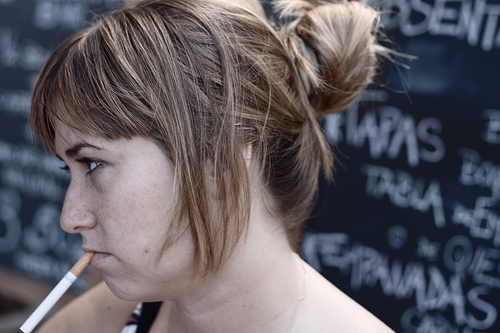
Smoking Is Linked To Breast Cancer
You already knew that smoking is bad for you, and that it can cause lung cancer. The latest research also shows that smoking increases the likelihood of breast cancer. This is especially true for women who take up smoking before they have kids, and for women who smoke after they have entered the menopause. A 2013 cohort study reveals that the rate of new breast cancer cases was 24 percent higher in smokers than in non-smokers, and 13 percent higher in former smokers. Reducing your chance of developing breast cancer is just one reason among many to stop smoking, or better yet to avoid starting.
- Important notification about information and brand names used in this slideshow!
- Photo courtesy of martathegoodone by Flickr :http://www.flickr.com/photos/martathegoodone/3975700558/
- www.mayoclinic.com/health/breast-cancer-prevention/WO00091
- http://www.cancer.org/cancer/news/study-links-smoking-to-breast-cancer-risk
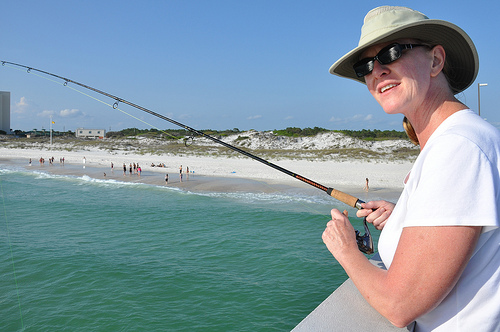
Avoid Hormone Replacement Therapy During The Menopause
Hormone Replacement Therapy (HRT) is a popular way to cope with the unpleasant symptoms the menopause brings. It may be effective, but research shows that it does not do your breast cancer risk any good. Dealing with menopause symptoms is probably preferable to increasing your risk of getting breast cancer, as they do go away relatively soon. Those women who really feel they need HRT to get through the menopause should at least stay away from drugs that contain progesterone, and limit their use of hormones to less than three years. Note that so-called bio-identical products are not safer than prescription HRT.
- Important notification about information and brand names used in this slideshow!
- Photo courtesy of Florida Fish and Wildlife by Flickr : www.flickr.com/photos/myfwcmedia/7071145079/
- www.fhcrc.org/en/diseases/breast-cancer/tips-prevention.html
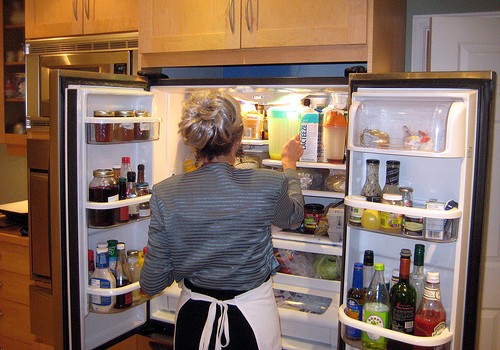
Does Diet Impact Your Breast Cancer Risk?
A healthy and balanced diet is beneficial for everyone. If your diet is low in fats and high in fruits and vegetables, you may be cutting your breast cancer risk as well. The negative impact of dietary fats and the positive effect of fruits, vegetables and nuts are currently being studied. While it is clear that eating healthily is very important, it does not negate other risk factors a woman may have for breast cancer. You will still need to take preventative steps such as regularly examining your breasts for lumps and changes, and having mammograms as recommended by your doctor.
- Important notification about information and brand names used in this slideshow!
- Photo courtesy of Richard Kelland by Flickr : www.flickr.com/photos/rkelland/2132391056/
- www.cancer.org/healthy/eathealthygetactive/acsguidelinesonnutritionphysicalactivityforcancerprevention/acs-guidelines-on-nutrition-and-physical-activity-for-cancer-prevention-summary
- http://www.webmd.com/breast-cancer/guide/understanding-breast-cancer-prevention

Check Yourself And Get Mammograms Regularly
Detecting breast cancer is the key to maximizing survival rates, and this is one area in which individual women can really make a difference. Breast self-exams and clinical breast exams may help women find any lumps that appear in their breasts, but they have not been shown to decrease the risk of drying from breast cancer. Having regular mammograms, or X-rays of the breasts, is the most effective way to detect breast cancer in its early stages, while it is easiest to treat. All women over 40 should talk to their doctor about the intervals at which they should be having mammograms.
- Important notification about information and brand names used in this slideshow!
- Photo courtesy of smweb2 by Photobucket :http://media.photobucket.com/user/smweb2/media/breast-cancer.jpg.html?filters[term]=breast%20cancer&filters[primary]=images&filters[secondary]=videos&sort=1&o=18
- www.cdc.gov/cancer/breast/basic_info/prevention.htm
- http://www.cdc.gov/cancer/breast/basic_info/screening.htm

Consider Taking An Estrogen-Blocking Drug
A family history of breast cancer and being older than 60 are both known risk factors for breast cancer. If either applies to you, you may want to talk to your doctor about taking an estrogen-blocking drug. Eighty percent of all breast cancers are fueled by the hormone estrogen, and medications like tamoxifen and raloxifene could bring down your odds of developing breast cancer. These drugs are also given to women who have already been diagnosed with breast cancer, to combat the cancer's growth. While the drugs do reduce your breast cancer risk, they also come with side effects. A serious discussion with your doctor will be needed before you make the decision to take an estrogen-blocking drug.
- Important notification about information and brand names used in this slideshow!
- Photo courtesy of leafzillawow by Photobucket :http://media.photobucket.com/user/leafzillawow/media/grandmother.jpg.html?filters[term]=grandmother&filters[primary]=images&sort=1&o=69
- www.fhcrc.org/en/diseases/breast-cancer/tips-prevention.html
- http://www.webmd.com/breast-cancer/guide/hormone-therapy-choices



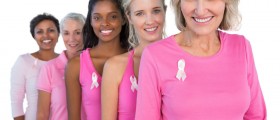
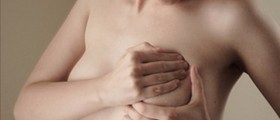
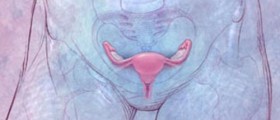
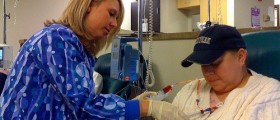
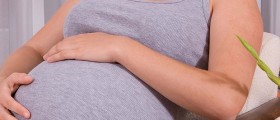
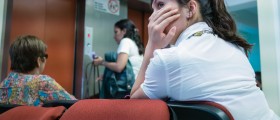

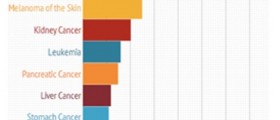
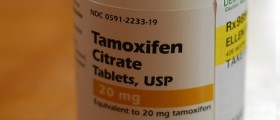
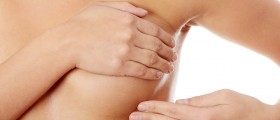
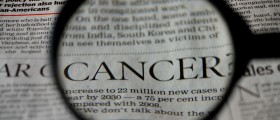
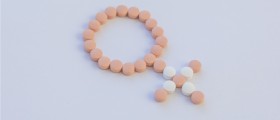

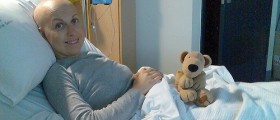
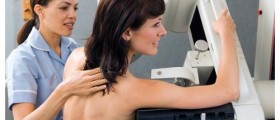

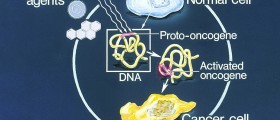

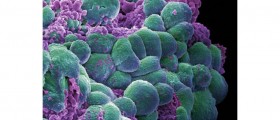



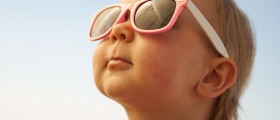
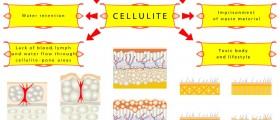
Your thoughts on this
Loading...